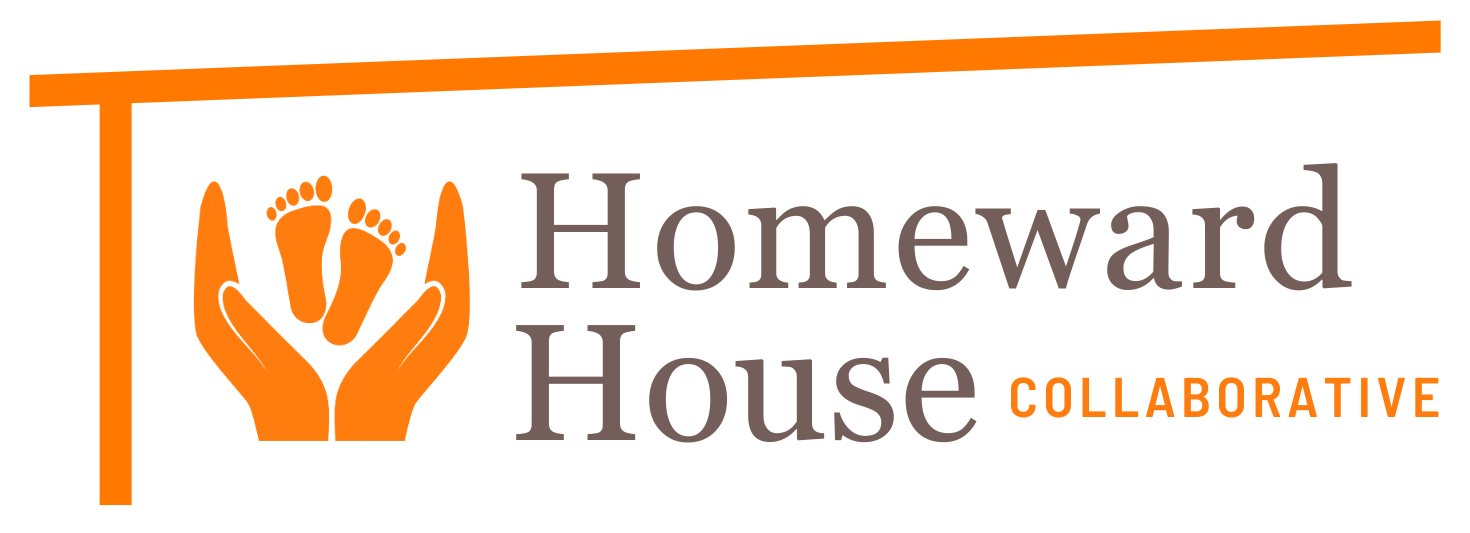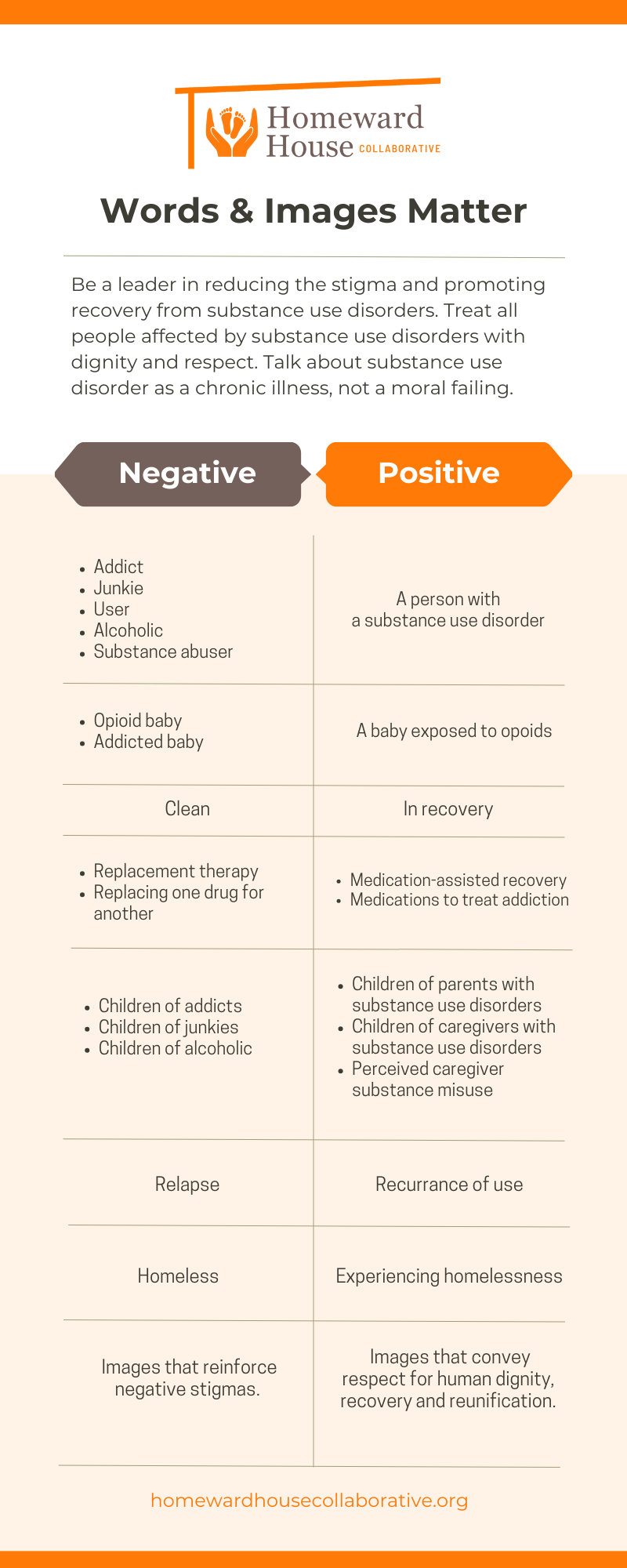How to Transform Stigma to Support
Words have the immense power to wound or heal… The right words catalyze personal transformation and offer invitations to citizenship and community service. The wrong words stigmatize and disempower.
The stigma facing parents with substance use disorders is significant. We can all take steps to change the narrative and reshape perceptions to foster inclusivity and create pathways for treatment, recovery, and well-being for all.
A substance use disorder is a chronic illness, not a moral failing. Contrary to what is often depicted in the media, most parents dealing with substance use disorders care deeply about their children and can recover.
Stigma is a barrier to recovery
The harmful impact of stigmatizing language about substance use disorders is becoming well known. However, the stigma persists, even within professions committed to support and recovery.
“Stigma is a degrading and debasing attitude of the society that discredits a person or a group because of an attribute… Stigma destroys a person’s dignity; marginalzes affected individuals; violates basic human rights; markedly diminishes the chances of a stigmatized person of achieving full poential; and seriously hampers pursuit of happiness and contentment.”
—2015 International Conference on Stigma, Howard University, Washington, DC
Parents facing a substance use disorder often endure heightened stigma, particularly if they are Black, Indigenous, or other people of color. These parents not only grapple with the challenges of overcoming addiction but must also contend with additional layers of discrimination.
Many parents and expectant parents who are experiencing substance use disorders avoid reaching out due to their fear of being judged and of losing custody of their children. This fear compounds their struggles, hindering their path to recovery and jeopardizing their family’s well-being.
A real or possible intervention from child protective services (CPS) further intensifies these fears, deterring parents from seeking help and leading them to hide their challenges.

Replace stigma with strengths
By shining a light on the positive qualities of parents and expectant parents with substance use disorders, we can help reshape how they are perceived and talked about. Adopting this strengths-based approach helps remove stigma and empower them in their recovery.
The language we choose plays a significant role in this process. Research underscores the importance of using “person first” language, which emphasizes the individual rather than defining them by their condition.
For example, replacing terms like “addict” and “drug abuser” with “a person experiencing a substance use disorder” reduces stigma. It flips the narrative from people abusing substances to more accurately reflect the fact that substances abuse people.

Stigmatizing language
“In this family, both parents are addicts, unable to control their abuse of opioids. They neglect their children’s needs and prioritize their addiction over everything else.
Their home is chaotic, filled with drugs and alcohol, and their children are likely to grow up with numerous behavioral and developmental issues due to their parents’ irresponsible behavior.”
Language that doesn’t stigmatize
“This family is facing significant challenges related to opioid use. The parents are currently struggling with substance use disorders, which have created difficulties in maintaining stability within the household.
Despite these challenges, they love their children and are seeking support to overcome their addiction and provide a safe and nurturing environment for their family. With access to appropriate resources and support, this family has the potential to heal and thrive together.”
Less stigma leads to more treatment
Treatment works and parents do recover. Between 75 and 85 percent of individuals who enter treatment report maintaining recovery nine months after rehab. Yet 90 percent of people with substance use disorders do not receive the treatment they need, and the perpetuation of stigma is one of the reasons.
The words and images we choose can help remove barriers to treatment. Treat all people affected by substance use disorders with dignity and respect. Talk about a substance use disorder as a chronic illness, not a moral failing. Let’s unite in taking a strengths-based approach and using words and images as instruments of compassion, understanding, and hope.
If you or someone you know is expecting a child or is the parent of an infant and is experiencing a substance use disorder, Homeward House is here to help. Reach out here.



